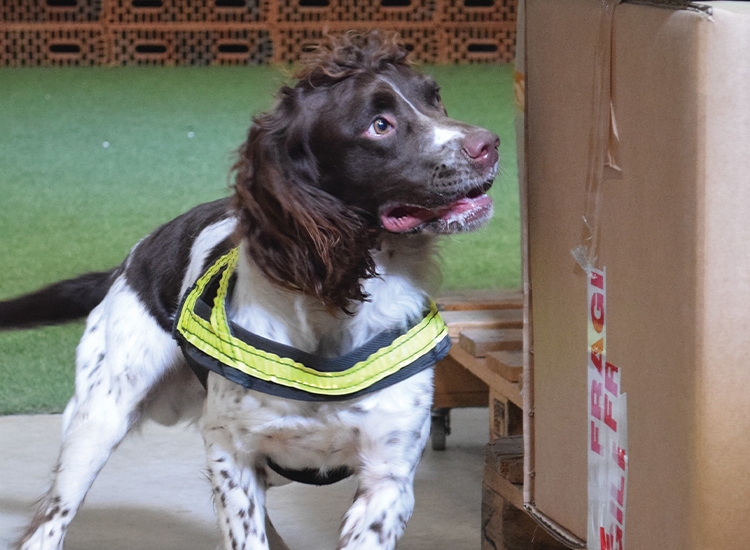Canine security: A key layer to a robust security provision
The demand for working dogs, both detection and patrol dogs, has increased during the pandemic and continues to play a key role in securing businesses and supporting the steady opening of our much-missed entertainment and sports venues as we return to some sense of normality.
In this article we consider the increasingly key role dog teams play in providing an effective and dynamic security solution during this phase of the pandemic.
Paws on the ground first
Dog teams provide a versatile, mobile and rapid screening service which is non-intrusive and efficient. Using their natural abilities (hunt and prey drives), dogs can detect a wide range of items, including drugs, explosives, pyrotechnics, currency and mobile phones. Unlike machinery, dogs can screen both metallic and non-metallic objects. Whilst explosives-detection devices can flag the presence of explosives, dogs will indicate the explosive and its location.
Force multiplier
A handler and dog can swiftly and discreetly security screen an area, on average, a quarter of the time taken by a single security officer. Handlers and their dogs work in unison, complementing each other, working as a team, allowing the handler to communicate any areas of interest/concerns to other agencies that are involved in the search.
COVID-secure screening
In a world where social distancing has become the preferred norm, a dog team becomes the ideal screening solution. Detection dogs deployed on an extended lead can screen a bag without the handler encroaching on social distancing guidelines. This method is non-intrusive and swift. It can reduce the need for manual searches, thus speeding up entry points and safeguarding personnel/visitors. However, the need to search for other contraband, such as bladed weapons, must be factored in.
New standards within the Canine Security profession
The National Canine Training and Accreditation Scheme – Private Security Industry (NCTAS-P) was launched earlier this year. This new scheme sets standards for the explosives detection dog team accreditation in the private security sector.
The NCTAS-P scheme is one element of Counter Terrorism Policing’s Step Change Programme, initiated in response to recent terrorist attacks. The programme recognises the important role the private security industry plays in protecting a wide variety of important sites, venues and events.
A skilled, experienced and highly trained workforce is fundamental to the delivery of a top-quality security service. The same principle applies to our working dog teams, which is why the introduction of this new NCTAS-P standard is important.
A multi-layered approach
An optimum security operation has multiple layers. Dog teams effectively complement a security personnel and technology provision, resulting in an overall robust, effective and reliable solution. The presence of dogs and handlers not only provides a visible deterrent, but also reassurance to businesses and the public.
Andrew Dodds
Head of Canine Security Services
ICTS UK & Ireland
Click here for more articles from ICTS
Click here for more articles on Canine Security
Click here for more articles on Security Management


